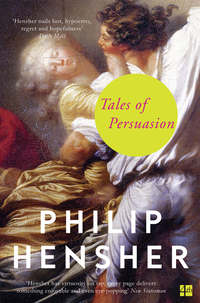
Полная версия
King of the Badgers
‘There’s not been a policeman on the beat here for years. Where are they all? Filling in their little forms in their little offices. And they’re here now, but what are they doing? Not house-to-house, they’re not doing that. They know, we know, there’s sex offenders living here in our midst, in Hanmouth. One of the chief constable’s officers told me as much. But they won’t tell us who they are or where they live. Anyone who’s got a little girl in this town wants to be worried. You think, it could be your daughter or your granddaughter next. It might be as easy them that get taken as China, next time. We want to know. It’s our right. What’s he got to say about that?’
On the stage in front of the blue west of England police screens, next to the chief constable with his bewildered expression, the girl’s mother sat, entirely relaxed. She might have believed the mission statement in fake loopy handwriting behind them, so calm did she seem: Helping People Safely. Her eyes were cast down towards her folded hands. Her long blonde hair fell like a curtain over her features. Heidi: she had been Helen in the papers, her birth name, or Tragic Helen, names nobody who knew her had ever called her. Snatched or posed, photographs of her frozen madonna-mask, refusing to weep, made a perfect front page; an old school photograph of China the usual inset. One enterprising paper had gone to Heidi’s long-estranged mother in Yeovil, and printed some old photographs of Heidi, ten or fifteen years old; the mother, afterwards, had been warned off coming anywhere near Heidi or Hanmouth, and some journalists were under the impression that Ruth’s mother Karen was her real mother.
Next to her was Micky, China’s stepfather, with the half-wit expression and shaved head, his mouth fallen half open. The visitors had taken his expression for shock or grief. Those who lived in Hanmouth had seen his empty face hundreds of times outside the worst of the small town’s pubs. They had never considered before that he came from Hanmouth, exactly. Some of them were surprised to hear that the sister-in-law, or whoever she was, was talking about ‘here’ as if she lived in Hanmouth, rather than in one of the grim suburbs that lay between Hanmouth and Barnstaple. Micky was known to everyone as far as Heycombe, however. He had a long-standing habit of showing his penis to newcomers and to girl students from Barnstaple, doing the Hanmouth pub crawl. His bun-like face was not made bewildered by grief or fear. That was what he looked like.
The chief constable allowed himself to think that the mother had prepared and rehearsed her sister, or sister-in-law, in these accusations. He also allowed himself to think that those involved in the rehearsal were much more extensive than that. The mother and the stepfather were, he saw, wearing new clothes from top to bottom, quite different from the new clothes they had been wearing when he had met them that morning. The price tag had still been on the sole of the woman’s shoes, as he had seen when she knelt to wipe some jam off one of her younger children’s chops. Newspaper money had paid for the new shoes, no doubt including a fat fee the interview in the Daily Whatever had brought them two days ago. The press had been full of the news that they’d asked to be paid in cash for that, though they’d all made a silent agreement not to mention any of that in their own coverage. This pair had been exploiting their opportunities and, in the eyes both of the police and the press, they knew what they were doing. It was as if they had been planning it before the child went missing, and the machinery had swung into action within hours. The way that the woman’s face had fallen to her hands a second or two before Ruth stood up had had a practised appearance. She didn’t want her satisfaction at the interruption and the discomfiture of the police to be too evident.
‘Let me assure you,’ the policeman said. ‘Let me assure everyone here that we are, indeed, carrying out house-to-house enquiries. These inquiries have led to a number of fruitful leads. We are now pursuing those. It would not be helpful, in the interests of our investigations, to explain here exactly what those leads are. I should also say that, in the hours immediately following China’s disappearance, we went as a matter of urgency to everybody in the vicinity who was on the sex offenders’ register. Of course, that was the first thing we did. We know who they all are, and they were our first priority.’
There was another rumpus, from the back of the hall. It was a man this time, looking not at all like one of Micky and Heidi’s relations, both deplorable and beyond genealogical analysis. This one looked very much like the sort of person who was supposed to live in Hanmouth, and soon people recognized him as the man who sat at the cash desk in the antiques emporium on the quay. He was the sort of person who in normal circumstances would complain about Heidi and Micky. He was wearing a tweed jacket and a tie, even on this hot spring night. His wife, by his side, nodded agreement as he shouted.
‘Who are they?’ he shouted. ‘Who are these sex offenders living in our communities? We need to know their names. I have grandchildren and—and—’
Heidi looked up, interested. She hadn’t anticipated or prepared this one.
‘Let me assure you—’ the chief constable said. ‘And that wasn’t the first thing you did. The first thing you did was to go wandering round my back garden without permission and walk up and down the long field out back, questioning innocent people while time got wasted. My wife and our grandchildren, our grandchildren, I tell you, they need to know—’
‘Let me assure you that investigations into such persons were immediate and very thorough. We will not, however, in the light, in the light of the strength, ah, of feeling around this case—’
‘This case?’
‘—around this case be revealing the names of those individuals who, though on the sex offenders’ register, are innocent of any involvement in China’s disappearance. I’m sure you can understand the thinking behind that.’
‘It’s not “this case”, it’s—’
‘We need to know—’
On the far end of the trestle table, Mr Calvin sat in his blue suit, taking notes. The chief constable had got to know him well in the last few days. He lived in Hanmouth, on the best street, the Strand. Calvin was the sort of respectable figure who would not normally have had anything to do with anyone like the O’Connors. He had announced himself to the police, once challenged, as ‘a friend of the family’s’, who would be liaising with them and advising them. Already, the chief constable happened to know, he had told the press and television that he was the O’Connors’ ‘representative’. An officer with a good memory recalled that, in fact, he was nothing more than the chairman of the Hanmouth Strand Neighbourhood Watch and, last year, had lobbied successfully for CCTV to be placed not only from one end of the Fore street in Hanmouth to the other, but the whole length of the Strand and some tranquil streets behind it where no crime had ever been committed. Whether any criminal had been caught by this inch-by-inch surveillance in the two years since, no police officer could say, but the cameras, and the signs announcing their presence, had been conjured into existence by the wish of Calvin and his committee. Now, his pseudo-legal authority had allowed him to take control of the O’Connors’ wishes and campaign. The police and press had, already, found common, unvoiced ground in detesting him. He gave a tight little smile to his clients, or friends, or customers, and finished what he was writing in his orange notebook. He tore out the page and passed it to Heidi, before closing the notebook.
‘I’d like to invite Heidi and Micky to say a few words,’ the chief constable said, with resignation. ‘I’m sure we all understand how difficult this is for them, and appreciate how brave they’ve been in coming here tonight.’
Heidi looked up from underneath her curtain of blonde hair, and turned to her left. She did not look at Micky, but at Mr Calvin in his blue three-buttoned suit and grey-white slicked-down hair. ‘Look at her,’ one of the women at the very back of the hall, Billa Townsend, the Brigadier’s wife, said to her friend from the reading group, and they both looked at Heidi. Despite the four children, the years of men’s demands and children’s commands in a small house buried a long way within the Ruskin estate on the Torcombe road, despite the lack of sleep this last week and the worst her newly acquired chainstore wardrobe could do for her, she was a beauty. Billa Townsend was indicating that in low tones, and her friend Kitty understood what she was being asked to look at. Heidi looked what she was, or had been: the sumptuous heroine of the Hanmouth Academy, and the eleven years since she had left school had done little to touch her perfect high-boned face, her green eyes, the pale stripe of hair falling like a shadow across her perpetually bronzed cheek, and that awkward but perfect element, the nose of an eagle or a duchess. They had shaken their heads when she had gone off, at sixteen, with sad, ratty Nigel. There must have been a reason for her to do that, and for the two hopeless men, one a hopeless and brief husband, since then. Must have been a reason, even, for Micky Thomas, seven years her junior. Hanmouth had hardly heard her speak since she left school, unless she had been suggesting a colour rinse in flat tones. Hanmouth had only, in the last year or two, seen her man in the worst of its pubs, heard his daft opinions, seen him manhandling different girls into the pub toilets at closing time. In her hand was the little page of the notebook Mr Calvin had passed her. She hardly glanced at it.
‘I’d just like to say thank you,’ Heidi said, in a flat quiet voice—the chief constable chivalrously adjusted the microphone in front of her. ‘I’d like to say thank you to everyone who is helping by making a contribution to the Save China fund. It means a lot to us that people who never met China care so much that they’ll send in thirty, forty, fifty pounds to help with the family expenses and the investigation that is going to help find China. China’s a lovely girl. She’s not an angel, she’s full of mischieviousness like any other eight-year-old. I just want to say to whoever’s got her that they want to think about us, think about her family, who love her so much and miss her. Her little brothers and her sister don’t understand she’s been taken, but they cry themselves to sleep every night. So, please, just bring her back home safe and sound soon.’
The cameras stayed for a moment at their sustained angle, waiting perhaps for the mother to start weeping. She had done so once before. ‘Hard as nails,’ one cameraman muttered to his sound man, and lowered the camera in disappointment. The chief constable was winding up now, giving the same appeal for information that he had given the day before, but none of that needed filming. The party on the stage stood up—the chief constable and the woman police officer in charge of the O’Connors’ welfare, Calvin, the lawyer, Micky and Heidi. As at the end of a wedding, they sorted themselves out into disparate couples, the chief constable taking charge of Heidi, Mr Calvin walking with Micky’s elbow firmly in his grip, the lawyer and the woman police officer bringing up the rear. The community centre rose like a congregation, solemnly and silently. At the back of the hall, the crowd, which hadn’t found seats and was filling the lobby and half the street outside, pressed against each other and divided. The police officers at the back pushed and shoved, finding space for Micky and Heidi and their official attendants. ‘Those sex offenders—we need to know, Chief Constable,’ the man who had shouted out said again, now in quite a reasonable voice as the officers passed. Heidi smiled brilliantly for a moment; the chief constable did not appear to have heard.
The hall had been solemn, concerned and angry, but the mood petered out the further you got from the stage. Outside, in the warm spring evening, the crowd was inquisitive, unfamiliar to each other, and even festive. One man staring at Heidi and Micky’s departure was finishing off a Cornetto. They hadn’t bothered to change their clothes into anything respectful of the occasion. Some of the men were in swimsuits with a T-shirt or vest on top, a pair of vivid splashy Vilebrequin shorts and flip-flops, straight from the pool, their girlfriends in spaghetti-stringed tops and sarongs over wet bikinis. They stared as if at celebrity, and spilled halfway down the street as far as the Co-op and the Case Is Altered, one of the better Hanmouth pubs, and evidently doing very well out of the influx of curious outsiders. One woman had come from as far away as London, it was said, though an excited report of travellers from Germany turned out to refer to some holiday-makers who happened to have stumbled, bemused, on the happy scene.
In the middle of the crowd, blocking the street, there was a police car. Somehow a path was got through to it. Heidi and Micky, guarded by police, got into the back. Micky was openly staring at the strangers staring at him. Each of them held up a camera phone to their faces over the policemen’s shoulders. The woman police officer in charge of the investigation got into the front, and the crowd, disappointed, parted. The car was permitted to set off. The chief constable, accompanied by a couple of officers, made his way as best he could through the crowd to his driver and car in the car park behind the community centre and the fire station. The stars of the show had departed. The audience, leaving the community centre, lost its focus of interest but not its excitement. Hanmouth acquaintances started greeting each other, quite happily. The outsiders, knowing no one, drifted away disappointedly.
12.
‘Well, that was sad,’ Billa Townsend, the Brigadier’s wife, said to her friend Kitty. She spoke briskly.
‘I know,’ Kitty said, as if with wonderment that, of all the emotions in the world, Billa had happened by sheer chance to express the very one that she, too, happened to be feeling. ‘Awfully sad, really. Rather wish I hadn’t gone. Just to look at the poor mother—what she must be feeling, I can’t imagine. Terribly sad.’
‘We’re going to be late for Miranda’s book club,’ Billa said. ‘We’d better make a move.’
The pair of them, each with a string bag containing a book—the same book—and strong, cross, hairy old faces over their quilted blue or green sleeveless gilets, turned away from the community centre and down the Fore street towards the quay. Beyond that was the long line of Dutch houses where Miranda lived. The air of reckless festivity was strong in the street now that the police had gone. Outside the Case Is Altered, a dozen men stood and drank, smoking. None of them was known to Billa or to Kitty. A noisy record from the jukebox enquired, through the open window of the inn, whether someone wished his girlfriend was hot like the singer. Billa didn’t know why it was so necessary to make such a frightful din about everything nowadays, and Kitty, throwing everything into her answer, said that she knew. Three unfamiliar children, perhaps the children of some of the drinkers, did handstands without surveillance or restraint against the white-painted carriage arch, against the landlady’s trellis. It didn’t appear like a community in which a dangerous child-abductor was on the prowl.
‘It all seems so normal,’ Kitty said. ‘And us carrying on as normal, going to the book group just as we arranged before all of this happened, as if nothing had happened at all. Talking about the same book we were going to talk about.’
‘Well, I don’t know what we were supposed to do,’ Billa said. ‘Everyone always complains that they hardly have time to finish a book even with a month’s notice. We could hardly have changed the book to something more suitable, even if’ —the noise of the crowd was muted as they turned down the kink in the Fore street’s progress ‘—people really wanted to talk about a book with more relevance. A kidnapping story, I suppose you mean.’
That wasn’t what Kitty really meant; she couldn’t have said what she meant. Billa’s flat-fronted Georgian house, like a house front on a stage flat, came into view. They inspected it from top to bottom. The Brigadier stood in the window of the kitchen, conducting with one hand the orchestra on Classic FM, which was murmuring on the sill next to the scarlet pelargoniums. With the other, he was evidently ironing; he liked to do the week’s ironing on a Tuesday evening, and nothing much got between him, the ironing and Dvoák Evening on the radio.
He was deeply involved in his double task, and did not observe Kitty or Billa as they passed; neither did they try to attract his attention. He had had a lifetime of putting rifles together, of instructing others how to put rifles together, of walking down lines of men ensuring that rifles had been put together properly, and finally of confidence that the men had been properly trained and inspected before he walked a step or two behind Her Majesty, brimming with pride. In old age and retirement, he ensured that he maintained the orderly requirements of a lifetime, dressed with the neatness of an old soldier, and presumably had managed in the army to carry out small domestic chores when required. But little improvements in domestic items over the years had achieved the difficult task of reducing him to helplessness, and he struggled with steam irons and the programmes of modern washing-machines.
They passed on, and a new crowd outside the yellow-painted pub on the quay soon made itself apparent.
‘Have you read it?’ Kitty said.
‘The Makioka Sisters?’ Billa said. ‘Yes, indeed. We ought to have gone through it when we were supposed to rather than tramping off to Crimewatch UK. Now we’re just going to have to discuss it when we get to Miranda’s. I suppose it’s called keeping your powder dry, but I don’t care for it.’
From the upper reaches of the first house on the Strand emerged the sound of the Bach G major cello suite, soupily expressive on every attained top note. It was John Gordon, straining and sobbing over every unfulfilled promise of tune in the piece. At seven, every evening, before dinner, he always did this. Billa and Kitty knew what the piece was because it was John Gordon’s only piece, brought out at parties and dinners, at every invitation and carefully announced. Some people said it was not only his only piece but his only accomplishment in life. He had learnt it at school, many years ago, and at seven in the evening, every day, he opened the upper window and embarked on it, playing it through twice. But everyone knew the same errors would be in it the next day, unimproved by practice and the imitation of self-analysis.
The curtains at the next house, the drawing-room windows of which were sunk somewhat below the level of the pavement, were drawn tightly. Everyone knew why. The Lovells’ children had departed to the City, PR in Dubai, and that final difficult one to Oxford to read Japanese. Now, while the sun was still above the horizon and their children far away, the Lovells had taken to early-evening sex in the sitting room, kitchen or even hallway. Mr Lovell returned from his GP’s practice in Barnstaple and dropped his clothes in the hall; Mrs Lovell, abundantly fleshy, would come from the garden to meet him, wriggling out of skirt and blouse as she came. Tonight, the little squeaks of joy came with treble clusters of tintinnabulating piano chords, as if in improvised modernist accompaniment to John Gordon’s Bach next door. They were doing it in the dining room, on the keyboard of their untuned Yamaha upright. It happened to some people, that obsession with throwing their clothes off at an age when it would be best to keep them on. The Lovells’ invitations to view their holiday photographs were only accepted once, by the unwary.
Over the road, in the detached gardens belonging to each house, a dog sat before a white-painted hen house. He was entranced. Stanley’s long marmalade ears flapped to the ground, his doleful eyes on one chicken or another. They emerged, retreated, strutted like showgirls around Stanley. Stanley the basset hound belonged to gay Sam who ran the specialist cheese shop and his solicitor boyfriend, the Terrible Waste, Harry Milford—Lord Harry, properly—with the office in Bidecombe. The dog had a mania for forms of life smaller than itself, and could sit happily in front of the Kenyons’ chicken coop for long hours. The Kenyons had no objection; they did not believe what the older and more vulgar inhabitants of Hanmouth told them, that that there dog was scaring they hens into fits. Miranda Kenyon didn’t believe that sort of hen was much of a layer in any case.
At the very end of the Strand, where the road ran out and turned into a narrow stone pathway along a beach of mole-coloured mud for another two hundred yards, the last house, Mrs Grosjean, kept a white-slatted beehive. It looked like a miniature tongue-and-groove New England lunatic asylum. Stanley loved that even better. It must have been something to do with the rasping hum the slatted box made, or so it was supposed. Mrs Grosjean suspected him, however, of wanting to thieve the honey within, and would chase him off with a flapping tea-towel and shrieks of alarm if she saw him sitting before it. As far as anyone knew, neither Mrs Grosjean’s bees nor Miranda Kenyon’s chickens had the slightest objection to Stanley sitting there, manoeuvring about him with their habitual chicken or bee noises, and he certainly seemed satisfied to sit and meditate in their presence. If it were rainy, however, he might settle for the more cryptic simulacrum of colony life presented by the washing-machine in Sam and Lord What-a-Waste’s kitchen once it arrived at the spin cycle. The only command he ever mastered, because everyone in Hanmouth said it to him, all the time, was ‘Go home, Stanley.’
13.
‘I wish they’d go home,’ Miranda said, peering out of the window, although the rubbernecking crowds had only come this far in dribs and drabs, and there was no one to be seen. ‘How’s Lord What-a-Waste?’
‘Oh, he’s fine,’ Sam said. He joined Miranda at the window. Once, Miranda had gone into the greengrocer just as Sam was leaving it. The two awful old crones who ran it had been rearranging some rather wrinkly Coxes and discussing Sam. Yes, he was that lord’s—the one who worked as a lawyer in town—he was his boyfriend. They lived up behind the Strand in one of those old fishermen’s cottages—two, rather, knocked into one. Big house, now, all wood and glass inside. What a waste, one harridan assured the other. It was as if she had believed that a nice rich lord with a solicitor’s practice and a big house—two knocked into one—would otherwise have done very well for her, or her ghastly friend, or for one of their slack-jawed daughters. They hadn’t said the same about Sam, who only ran a cheese shop, and who, therefore, wasn’t so much of a catch. Or perhaps it was that, though Lord What-a-Waste was somewhat inclining to plumpness these days, Sam could only be described as fat. With his shaved head and full jowls, he had a certain charm but, as he said himself, no one would call him love’s young dream any more. In the greengrocer’s, Miranda had listened to this unbelievable conversation before buying a random bag of woolly Spanish tomatoes and going round to Sam’s shop. She had told him the whole story without any delay. It couldn’t have been funnier, and since then Harry had been Lord What-a-Waste, though naturally not to his face. ‘He couldn’t be more cheerful, actually. He’s got some lovely new bit of hypochondria on the go. Full of the joys of something that might turn out to be a goitre, he believes.’
‘What is a goitre?’ Miranda said.
‘Heaven alone knows,’ Sam said. ‘I only said it for the comic potential.’
‘Sciatica.’
‘Boils. Piles.’
‘Giant wen,’ Miranda said fondly, as if bringing out a pet name.







